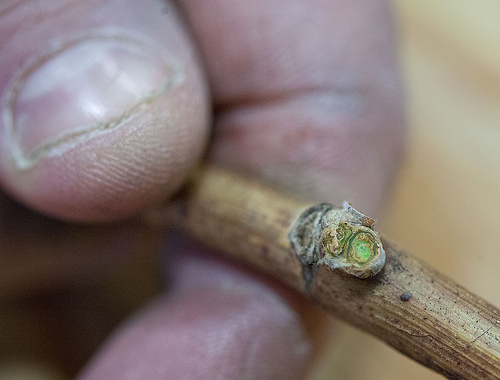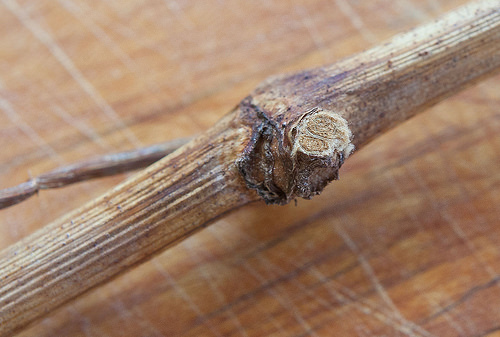I mentioned in a previous post that the SIAL Pitch Competition is always interesting – and this year was no exception. The competition gives Canadian and international start-ups in the food and beverage industry the opportunity to pitch their vision to a panel of industry experts and a live audience. Pitches are expected to focus on innovation, sustainability, and food security. The competition recognizes new products, technologies, and services with strong growth potential in North America.
At SIAL 2025 there were 16 pitches: 12 in the product category (or, in industry jargon: CPGs – consumer packaged goods) and four in the food technology category. The competitors have three minutes for their pitches and then they field questions from the judges for two minutes. In their pitch they can include videos, PowerPoint-type slides, music, props, samples, etc.
The amount of energy, enthusiasm, and creativity was quite something. The people doing the pitches generally were the business’ founders and they clearly think of the business as their baby – something they’ve nurtured and grown. They all had a story to tell: the story of how they came up with the idea and why the product or technology matters. They also explain why they think it has wide appeal – if they get the right help and guidance to help them grow their business to the next level.
A sampling of some of the pitches
The first pitch was by one of the founders of Rawcology – an Ontario business started by three sisters. They make allergy friendly, nutrient dense granola and snacks. They make the only nut free granola in the market and they’re looking for a strategic partner to scale up. There was no razzle-dazzle to this pitch – but I loved it. The founder had all the facts and figures down cold and was clear about what they offer, what they’ve achieved so far (they’ve had two orders placed with Costco Canada, for example), and where they see their business going.
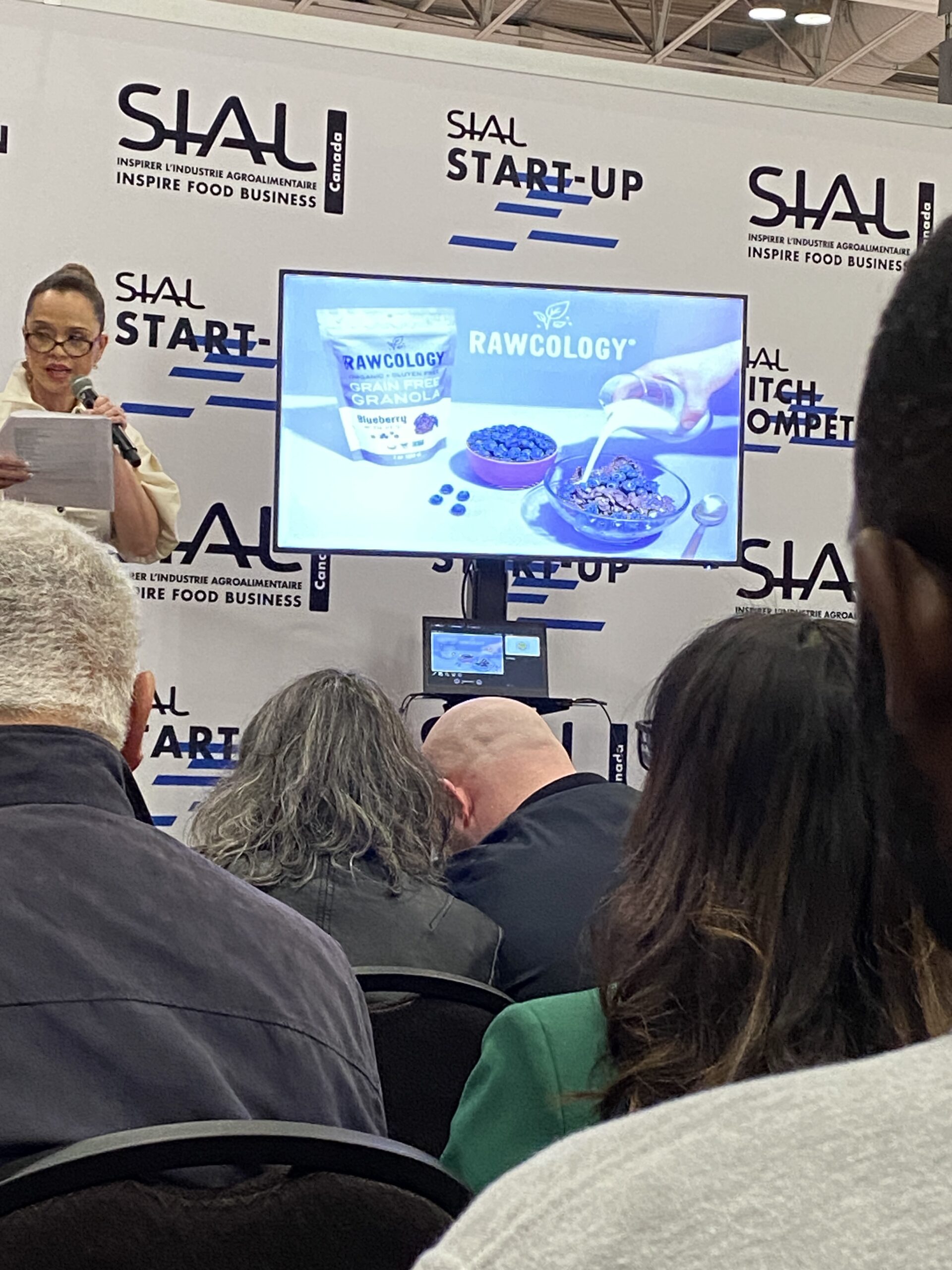
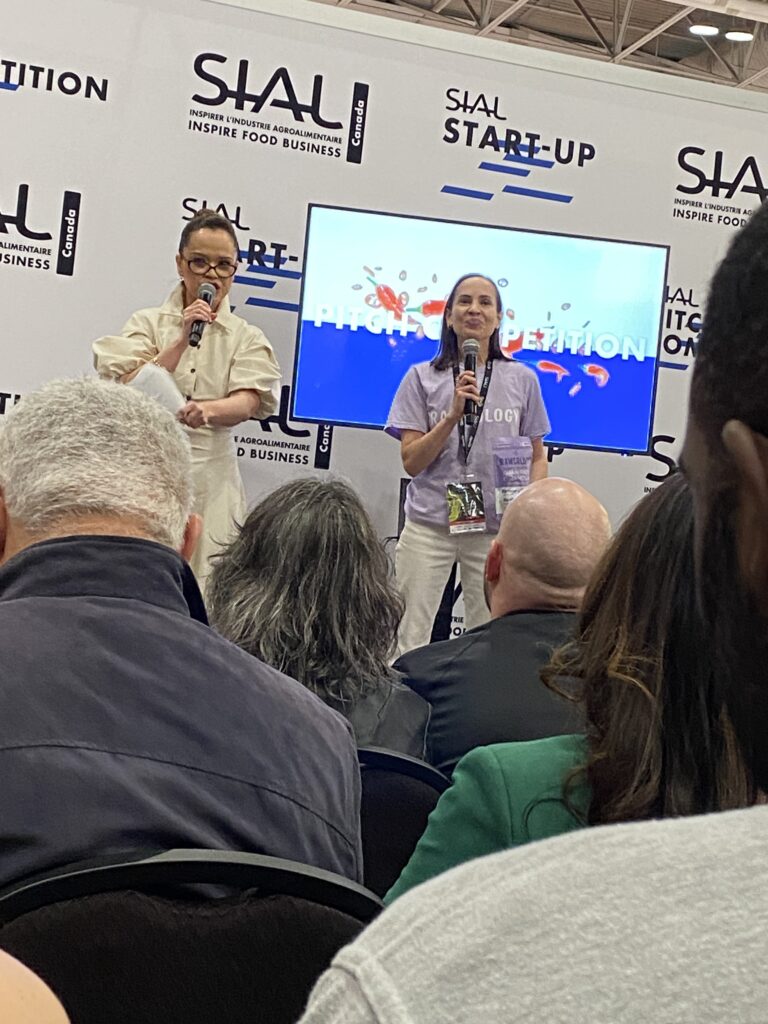
When it was Aliments Green Brothers’ turn, four 20-somethings did a skit called “Karaoke SIAL” with the lyrics to the song they created rolling on the screen (ala a karaoke machine). The lyrics included the key facts they wanted to convey about their products, such as their plant-based corn dog. I would give them high marks for creativity, but perhaps they could use a bit more polish. They didn’t win, but I think they came away with some very useful business advice in the form of a question from one of the judges. He asked if they had any intellectual property around their products and they said no – “just our recipes”. On hearing that, a different judge mentioned that they should take care to protect their recipes through things like non-disclosure agreements. That kind of free advice is huge for a young company.
Shannon Armishaw, one of the co-founders of Smoke & Tears, did the entire pitch in rhyme. She described other hot sauces on the market as cauldrons of tears whereas the depth and complexity of Smoke & Tears’ hot sauce is a catalyst for a culinary journey meant to empower people. I’m not sure I followed all that she said, but I admired her commitment to her presentation style, which she maintained even when answering questions from the judges.
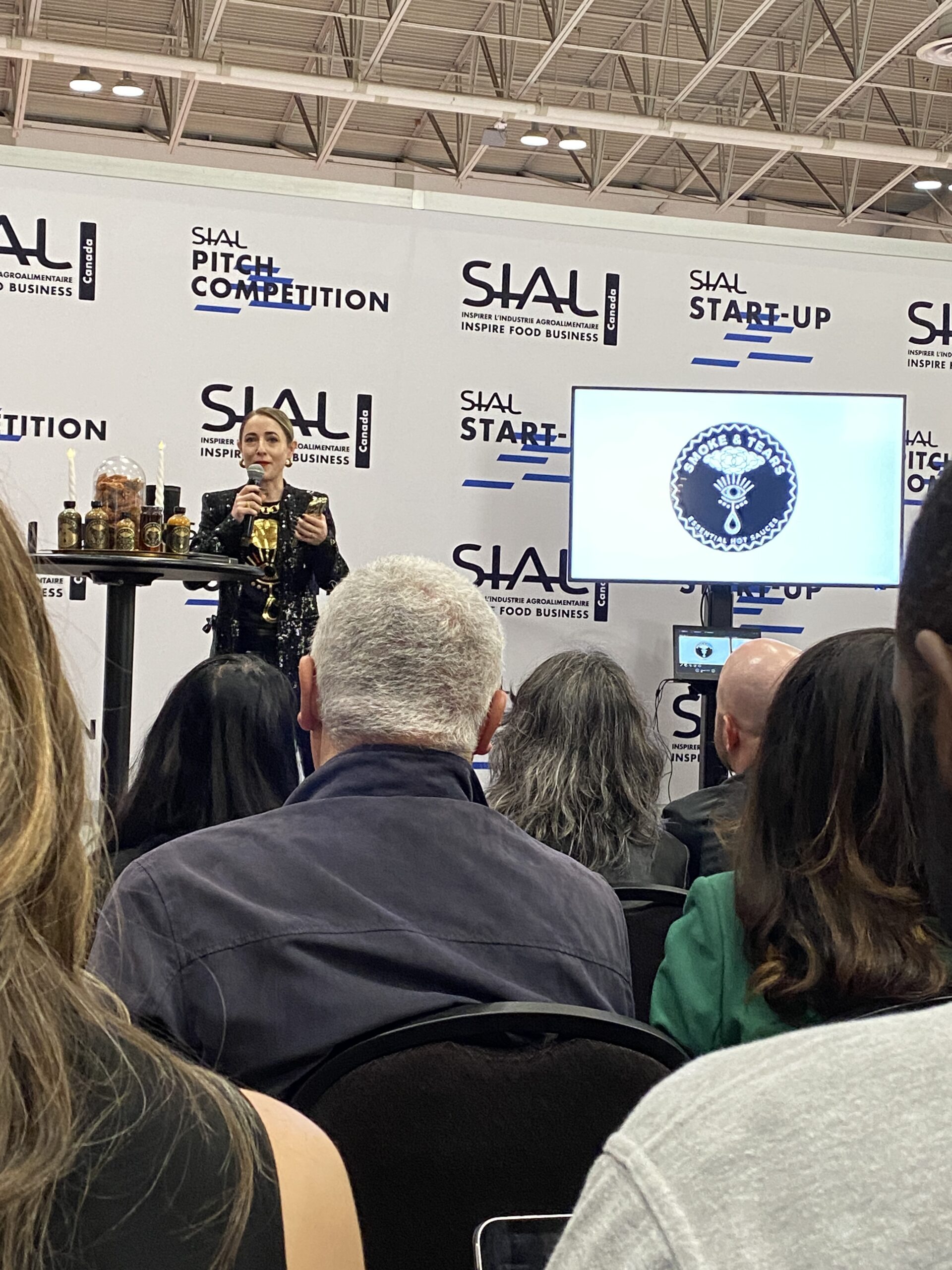
The first thing you notice about Goldy’s, is their logo. It shows a girl and a little bear and the famous phrase: This One’s Just Right. They chose that because they believe every family deserves a breakfast that is “just right” – and Goldy’s cereals and oatmeal offer just that. The products are non-GMO, gluten-free, glyphosate-free, plant based, and naturally sweetened.
The company was founded by best friends Daniel Carson and Daniel Schreiber. Carson – the more outgoing, creative of the two – crafted a very clever pitch around a story about what a hard week he had looking after his three kids while his wife was away. It was a cute tale of woe (complete with cute pictures of his kids) and of course, there was a happy ending with his kids having Goldy’s for breakfast. Schreiber – the more the financially focused of the pair – was on hand to provide specific answers to the judge’s questions. He also explained that one of their products is going into space, as NASA placed an order that will be stocked on the space station.
The Prize Winners in the CPG Category
Bronze CPG Category
Two start-ups shared the bronze prize: BONBON Collections and Chien Gourmand.
BONBON Collections is a Quebec business that makes baked goods that are vegan and free of the 10 priority allergens that impact more than 8% of the population. Like other start-ups in the pitch competition, the story behind BONBON Collections is a parent’s desire to respond to a child’s nutrition. In this case, Thao Nguyen, founder and president, had a daughter with food allergies and Thao didn’t want her to daughter to miss out on all the sweet things in life. So, she and her team developed BONBON Collections. They have quite a variety of products – from ready-made cakes, cupcakes, cake pops, to cookies, muffins and other snacks, and even mixes and ingredients for the home baker.
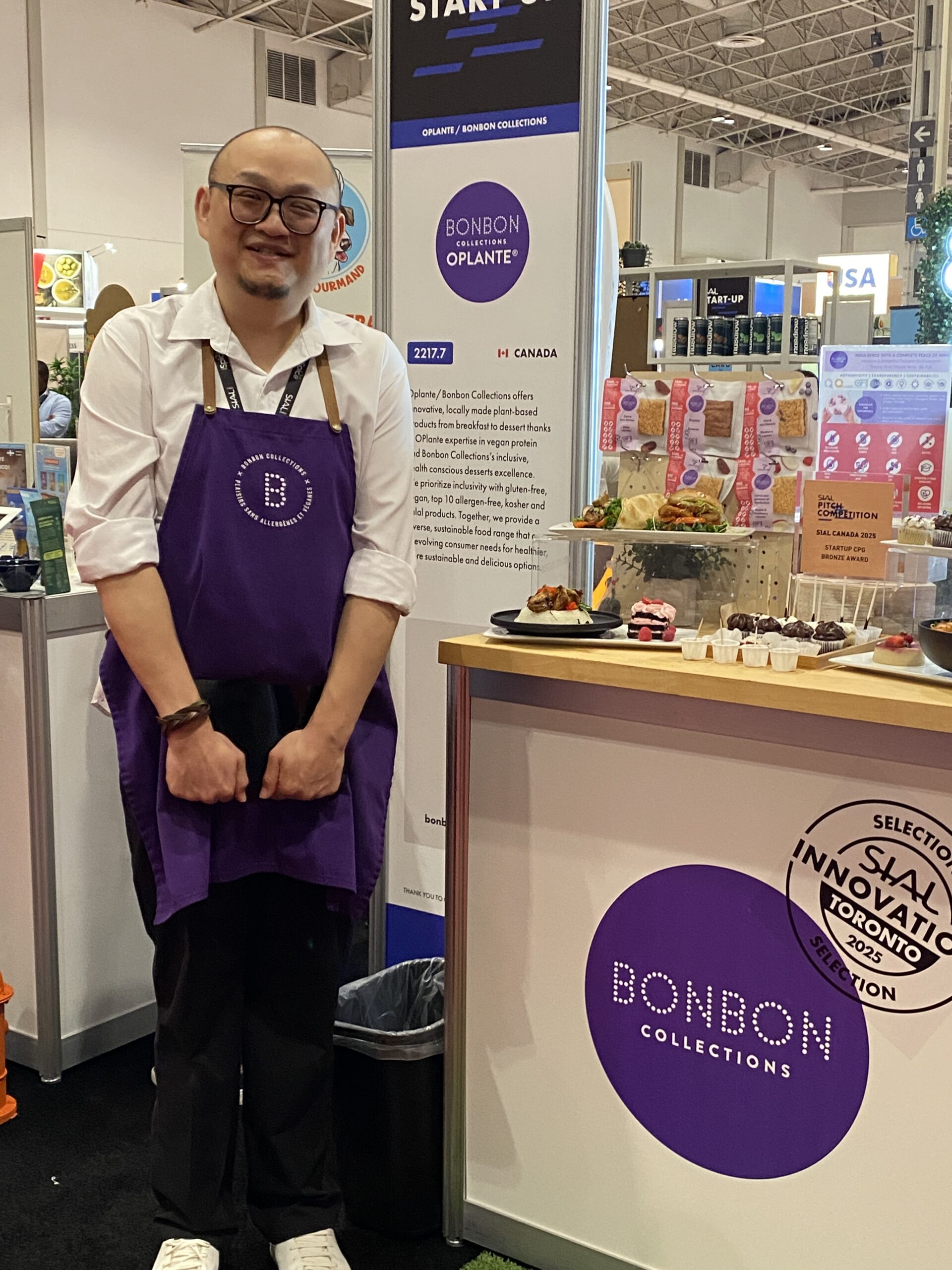
Chien Gourmand is a Quebec company that makes meal boosters for our furry friends. The product, which is meant to be sprinkled on dog’s kibble, is made of natural ingredients that are easier for dogs to digest than processed foods. They use human grade ingredients that provide essential protein, fibre, vitamins, and minerals to help keep dogs healthy. Nothing particularly flashy about this pitch, but the judges clearly liked Chien Gourmand’s approach and think it’s a good niche to sell in.
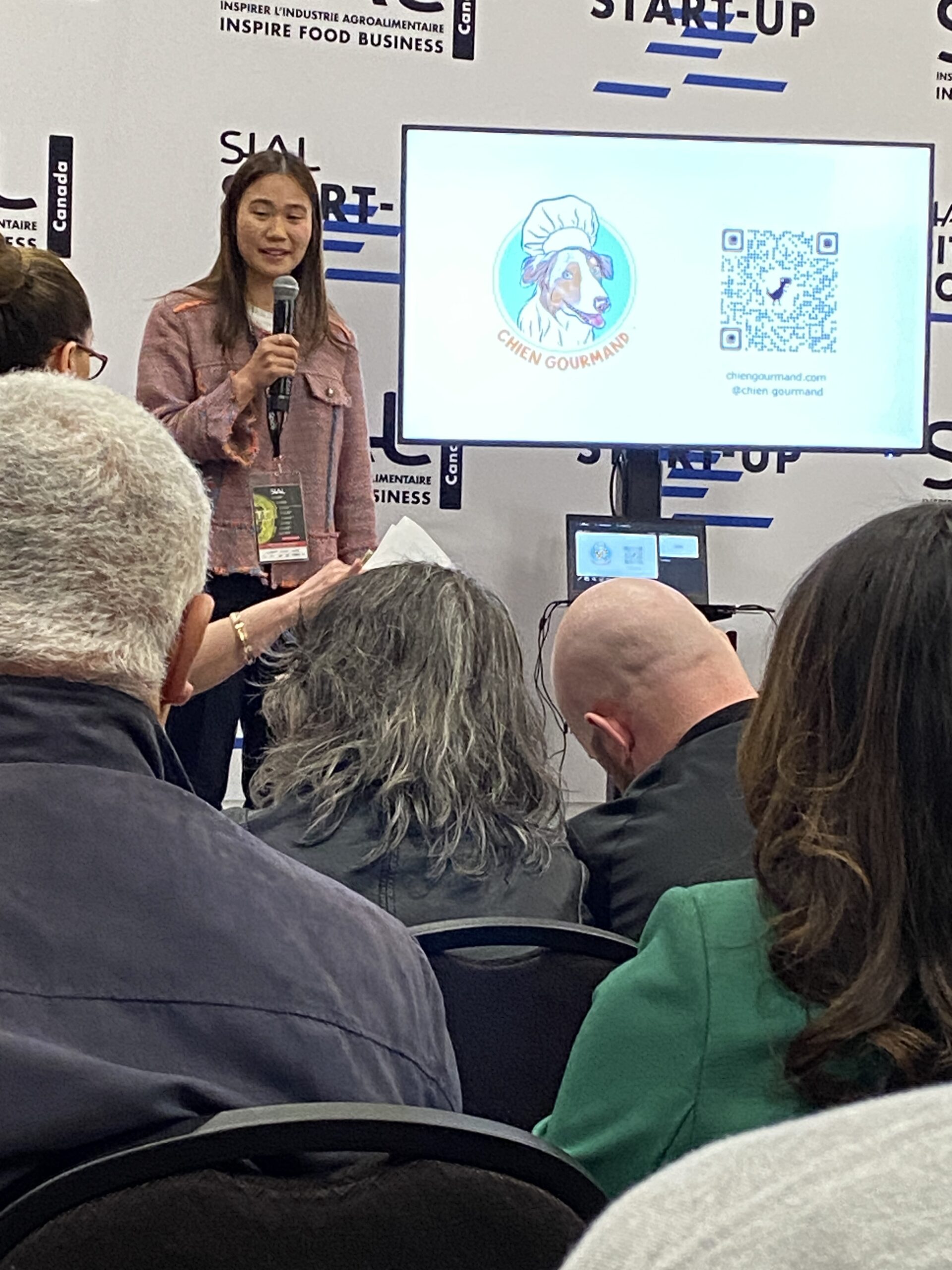
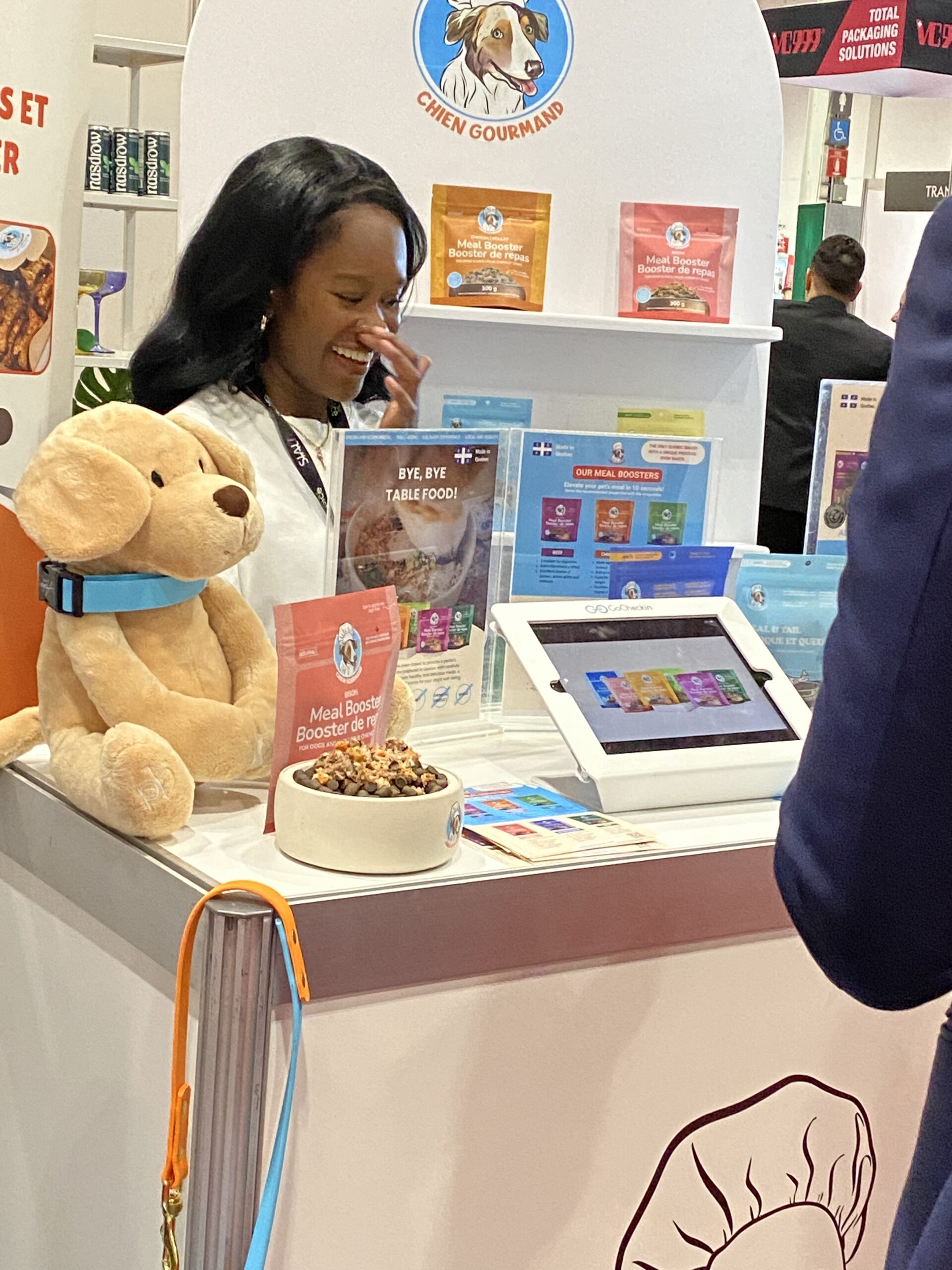
Silver Prize CPG Category
Goldy’s received the Silver Prize.
Gold Prize CPG Category
Nanashake took home the top prize in the CPG category for their plant-based frozen treats. The company was founded by a husband and wife here in Toronto who have a child that has asthma. Because traditional ice cream desserts exacerbated their child’s condition, they were looking for a healthy alternative dessert. They created their line of plant-based frozen desserts (popsicles and soft serve) that are naturally sweetened with bananas (hence the name). One of the interesting tidbits from their presentation is that they upcycle bananas – in other words, they use bananas that are too ripe to be sold as bananas.
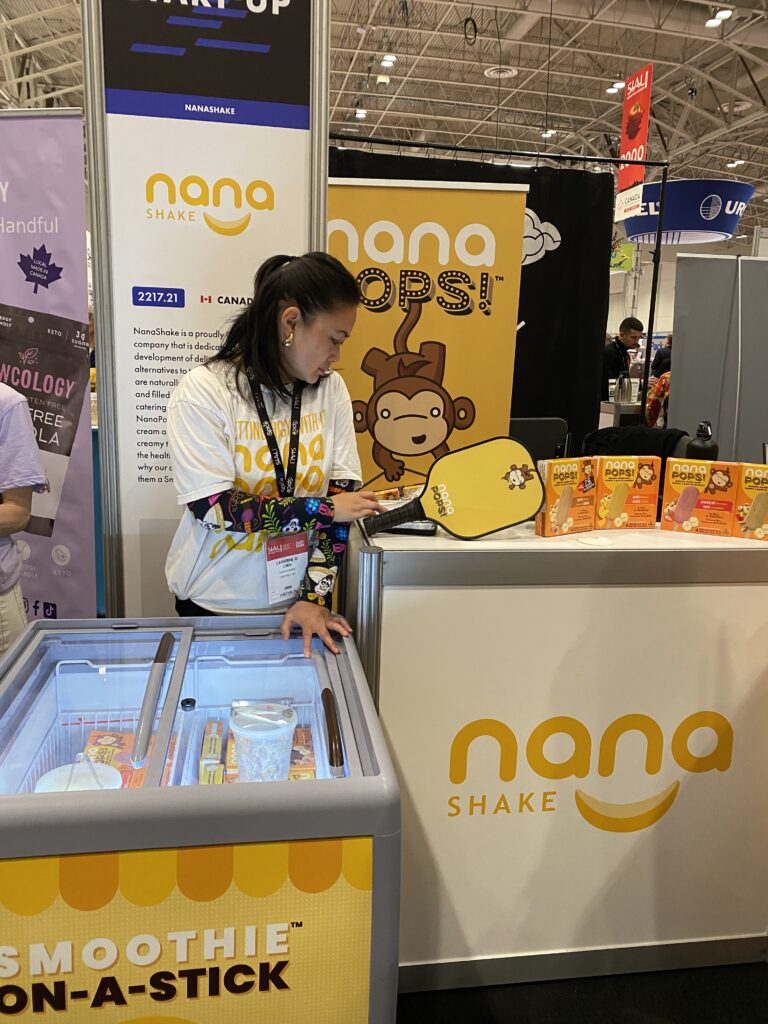
Food Technology Winners
Second Place Food Tech Category
Terra Bioindustries is a Toronto company that is conquering food waste. They upcycle brewers’ spent grains (BSG) into plant-based protein and fermentable sugars. Their TERRA Malt is a concentrated syrup that can be used in sauces, confections, and brewing. TERRA Protina is a barley-derived protein concentrate that tastes like bread. It reduces carbs and boosts protein and fiber in baked goods, snacks, pastas, and other products. TERRA Fibra is a high-fibre flour that contains over 60% of dietary fibre and has a mild, malty flavour.
First Place Food Tech Category
New School Food Inc., a Toronto start-up, won first prize in the food tech category. They describe their products as the next generation meat alternative. Their technology aims to mimic the muscle fibres and connective tissue, fats, and other components of meat and fish. Their latest offering is a whole-cut salmon filet made from plants. It was created to look, cook, taste, and flake like salmon and it has the same Omega 3 content as salmon. A number of restaurants across North America have added their plant-based salmon to their menu.
